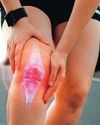
Understanding oral health: This is a state of wellbeing of teeth, gums and other structures within our oral cavity or mouth that help in proper eating, speaking and aesthetics. While dental health just denotes healthy teeth and gums, overall state of oral health encompasses maintenance of oral cavity, its structures, their functions and also facial features and aesthetics. So good oral health is when all the components of the oral cavity like teeth, gums, periodontium (tissues that support and surround the teeth) are functioning properly and in harmony with each other, supporting not just eating but also helping in digestion and maintaining proper alignment of facial features.
Proper brushing: Brush for two minutes with adequate (not excessive) pressure; just enough to remove the plaque build-up. Rigorous brushing harms teeth in the long run. Hold the brush at a 45 degree angle, move it in small circular motions and cover all surfaces. Wait for 30-40 minutes after brushing before eating or drinking anything. Some people tend to brush after every meal but do that only if you have had garlic/ onion or anything that gives you bad breath. Else brushing twice a day is fine.
Manual or electronic brushes?
Both are fine as long as brushing technique and pressure are proper.
What about mouthwash? It is not a necessity. It does complement your brushing, but, if your oral hygiene is good, skip it unless advised by your dentist.
The neglect of flossing: Dental health overall is neglected in India. It is not just about flossing. People find it a waste of time that there should be an added step to their oral hygiene routine. But it is highly recommended as a brush cannot reach between teeth and cleaning that area is important too. Flossing is technique dependent, so one needs to learn to do it correctly.
This story is from the September 08, 2024 edition of THE WEEK India.
Start your 7-day Magzter GOLD free trial to access thousands of curated premium stories, and 9,000+ magazines and newspapers.
Already a subscriber ? Sign In
This story is from the September 08, 2024 edition of THE WEEK India.
Start your 7-day Magzter GOLD free trial to access thousands of curated premium stories, and 9,000+ magazines and newspapers.
Already a subscriber? Sign In

Walking in pine forest can have the same effect as a prescription drug
INTERVIEW - KATHY WILLIS, professor of biodiversity, the University of Oxford, and author, Good Nature

MORE THAN A HELPING HAND
Maria Victoria Juan spent a lifetime healing wounded soldiers, and she can't think of anything she could have done better

Against all odds
Mohamed Raishan Ahmed was born with spinal muscular atrophy, which made him unable to sit, stand or walk. Recently, the Maldivian underwent a rare, complex surgery in India that now allows him to sit upright. At 23, the fact that he is alive is in itself an achievement. But he has gone beyond mere survival-with a pursuit of excellence

A pacemaker tale
From science fiction to reality, with a touch of southern Indian wisdom

Driving safe
Taxi drivers endure gruelling hours, cramped seats and relentless traffic, making them prime candidates for health issues like back pain, hypertension, diabetes and insomnia.

Good food, good life
From the moment of birth, we establish a relationship with food—a nourishing link that requires care and attention to stay healthy

POOR SLEEP IN MIDLIFE COULD AGE YOUR BRAIN FASTER
PEOPLE WHO EXPERIENCE SLEEP ISSUES, such as difficulty falling asleep or staying asleep in their 40s, may show more signs of brain ageing in late midlife. Poor sleep may accelerate brain atrophy that is associated with dementia.

BRAIN SCANS SHOW MINDFULNESS MEDITATION CAN REDUCE PAIN
CAN MINDFULNESS MEDITATION actually relieve pain, or is it just a placebo effect?

NON-SURGICAL OPTION TO EASE KNEE ARTHRITIS
A NEW, MINIMALLY INVASIVE procedure called genicular artery embolisation (GAE) can effectively reduce pain, improve quality of life and reduce progression of the disease and the need for knee replacement surgery in people with knee osteoarthritis.

EARLY ONSET DIABETES, BELLY FAT LINKED TO DEMENTIA
FACTORS SUCH AS DIABETES and belly fat in midlife can put you at risk of dementia and Alzheimer's disease later in life.